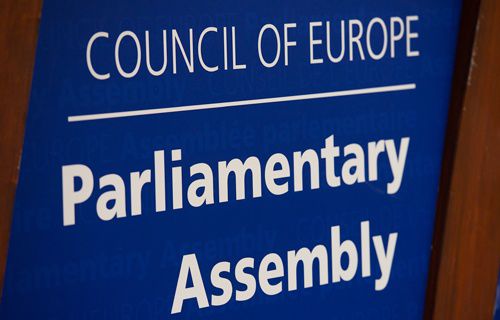Legal counsel Paul Coleman has spoken of the increasing persecution of Christians in Europe, identifying the main groups driving ideological agendas counter to Church teaching. Anti-Christian ideologies at the U.N. are “being advanced by three different groups,” Coleman told CNA in a March 23 interview, the first being “activist organizations, the primary drivers behind the movement.” “Then you have liberal, primarily Western countries driving the movement,” and finally “the institutions themselves at the United Nations.” Coleman is legal counsel for Alliance Defending Freedom at its office in Vienna, where he specializes in international litigation, focusing on European law. He was in Rome for the organization’s March 24 — 27 Media Convention, during which he gave a testimony detailing his time working with the Blackstone Legal Fellowship leadership training program, which educates law students on issues regarding religious freedom, which are not typically taught in law schools. Explaining some of the trends currently taking place, Coleman observed that one of the biggest is “the attempt to create a right to abortion in international law.” “There are many documents that are discussed at the United Nations where the phrase ‘reproductive health and rights’ and ‘sexual reproductive health and rights’ appear constantly … no matter what the issue is that’s being discussed, they always find a way to include those issues.” Another growing theme is that of the “SOGI movement” -- sexual orientation, gender identity movement -- which has emerged forcefully only “within the last decade,” Coleman noted. “It’s seeking to promote the terms sexual orientation and gender identity on an international level, and seeking to provide protections” and “to change international laws to include those terms.” One of the dangers present in this movement is that “the terms sexual orientation and gender identity are terms that aren’t particularly well understood,” he observed, adding that this terminology “changes, and that it can mean whatever people want it to mean.” “In effect, sexual orientation is” a code for “homosexuality and homosexual behavior,” the lawyer continued, “and gender identity is a code for transsexualism or people who feel they are not male or female, but something different, something between, or nothing at all.” Referring again to the three groups pushing these ideologies, Coleman stated that “aligned together they can be very effective” in advancing these causes. “We see for example, the United Kingdom has said it would withhold aid for Third World countries if those countries don’t change their laws on homosexuality” and “we see in America President Obama saying it’s a foreign policy priority to promote homosexuality across the world.” “These are powerful countries with huge international aid budgets, and they’re helping to push this issue around the globe.” Explaining the process of how these agendas are being advanced, Coleman recalled how the U.N. was founded after World War Two in order to protect and secure human rights, and to “guarantee the rights of man against the government” and “against government tyranny.” Following the drafting of the Universal Declaration of Human Rights, which was created in order to ensure this protection, the lawyer detailed how numerous treaties were created focusing on the safeguarding of the “fundamental rights of the individual.” Going on to describe what has happened in recent years, Coleman said these treaties “are being re-interpreted.” “Where international treaties say, for example, that people have the right to health, that’s being interpreted as saying, ‘well health includes reproductive health, and reproductive health, abortion; therefore there is a right to abortion.” Turning to the topic of marriage, the lawyer observed that “where a treaty says that everyone has a right to marry, the treaties actually say men and women of marry-able age have the right to marry, and that’s being re-interpreted as saying ‘well, there it says men and women. We should really interpret it in modern-day circumstances, so it should be man-and-man, and women-and-women.’” Another way in which these movements are advanced, he explained, is by “ignoring” the treaties “completely,” commenting that “instead of these treaties which have been signed by nations” and “which have been approved at the very highest level, we find that lots of other documents are drafted and approved with very little scrutiny.” “They are used as a tool to kind of force nations to change their laws,” the lawyer continued, noting that although nations can refuse, “they don’t want to be constantly harassed by the United Nations or the European Union” for not keeping their human rights obligations, so they don’t say anything. Eventually, he said, “if they’re told constantly, you need to change your laws on abortion, you need to change your laws on homosexuality, then that pressure can lead to change at a domestic level.” Coleman then offered comments on a recent report given by the U.N. Committee on the Rights of the Child report that condemned the Holy See’s child protection policies and called for the Church to change its doctrine regarding abortion and homosexuality. Noting that the committee is designed “to monitor the country’s progress in keeping up with the convention on the rights of the child,” it went “far beyond its mandate” with the report. It essentially took “the opportunity to criticize very heavily the Catholic Church, Catholic doctrine, and the Holy See on a number of issues that have nothing to do with the rights of children,” adding that “it was a perfect example of how these international bodies have gone far beyond their original mandates, and gone far beyond the founding of the United Nations itself.” The U.N., he explained, was designed in order “to bring the nations together in peace and harmony, and not to override their state sovereignty and certainly not to criticize doctrines of the Church.”

